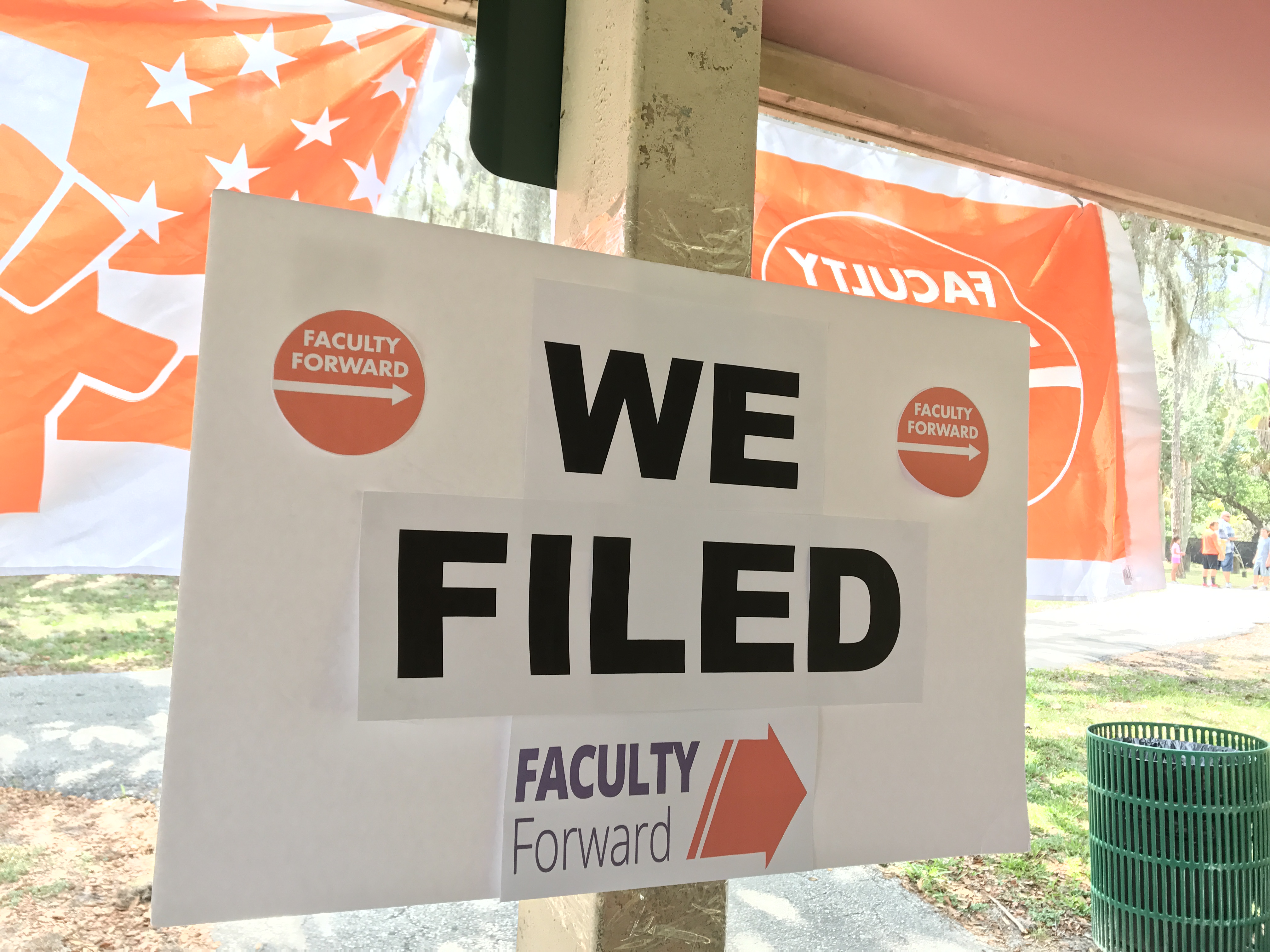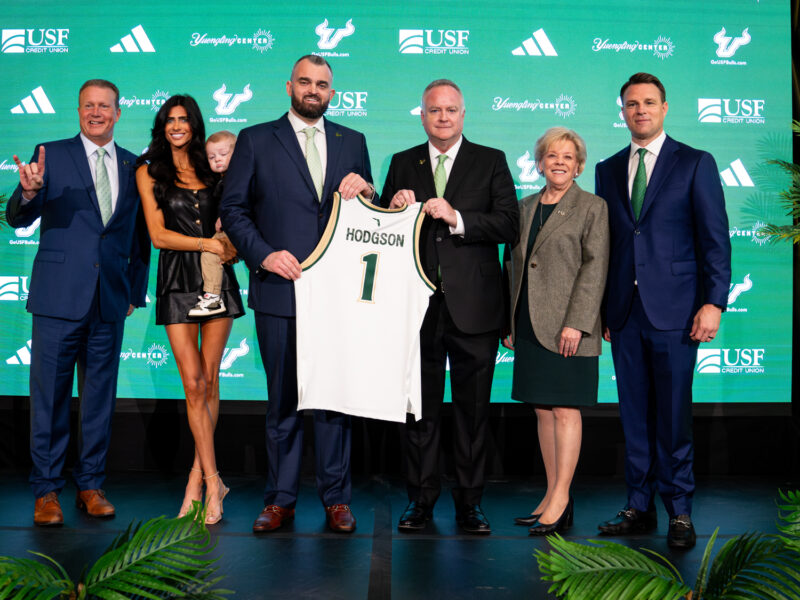
Adjuncts, the temporary, part-time faculty members who teach many key courses, have taken the first step to form a union at the three campuses of the USF system.
A group representing the adjuncts in St. Petersburg, Tampa and Sarasota-Manatee filed a petition last week to hold a union election sometime in the months ahead.
If a majority of adjuncts vote yes, the Service Employees International Union (SEIU) would become their agent in a quest for better pay, benefits and job security.
“It’s wrong to pay people so little that many adjuncts are on public assistance,” said Rebecca Skelton, a USF St. Petersburg adjunct who teaches art. “My husband calls us the migrant workers of academia.”
On average, USFSP adjuncts earn about $8,180 per year by teaching about 25 to 30 percent of a full-time load, according to a university report in 2015. The average annual salary for full-time USFSP faculty was $79,496.
“We are the have-nots, with no job security from one semester to another,” said Skelton, who has a master’s degree in fine arts from Auburn University.
Skelton has been a leader in an endeavor called Faculty Forward, which needed union authorization cards from 30 percent of the adjuncts on the USF system’s three campuses to submit the petition that was filed April 20.
“We believe that forming a union will enable us to build the power necessary to achieve pay increases, improved job security, better processes for teaching assignments, fair and transparent evaluations, access to benefits (and) routes to advancement,” the group said in an email to adjuncts in June 2016.
Adjuncts at Hillsborough Community College in Tampa recently became part of the union movement, which has been gaining nationwide momentum. In November, part-time faculty at HCC voted 2 to 1 to join SEIU.
The union announced the victory as the first for adjuncts at a public school in the South.
HCC adjuncts are now seeking a collective contract to improve pay and working conditions.
Martin Tadlock, the regional vice chancellor of academic affairs at USFSP, said some adjuncts have been with USFSP for years. There are not enough funds in the university’s budget to make their pay comparable to that of full-time professors, he said.
“Tuition could go up if adjuncts are paid more,” said Tadlock. “It’s complicated and depends on how much you could reduce programs and manage other costs.”
Tadlock, who was himself an adjunct at Mohave Community College in Arizona while he was getting his doctorate, said USFSP has adjuncts who are “outstanding teachers.”
“If adjuncts form a union, we would work cordially with them,” he said.
Nancy McCann, a graduate student in journalism and media studies, has taught as a graduate assistant and adjunct at USF Tampa and USFSP.



